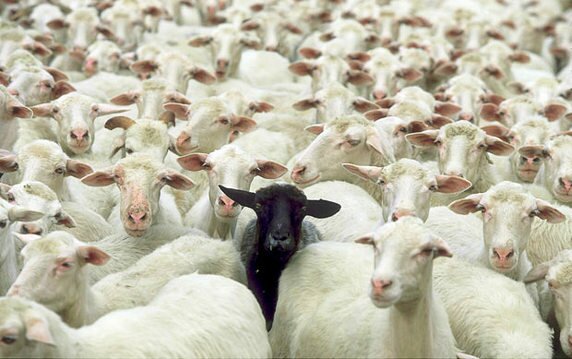Doing whatever you want whenever you want means that you will not always be accepted. Being accepted means that sometimes you have to do things that you don’t want to do. Obviously free will and acceptance are not mutually exclusive.
But what if they were?

Maslow’s hierarchy of needs, which argues that the need for love and belonging takes precedence over the need for self-actualization, has been criticized for failing to account for the very different perceptions of individualist versus collectivist societies.
I attempted to gauge how our demographic (college students, ages 18 to 25) stands on this issue by asking a few hundred students to complete a very short survey: “If you could only choose one, which would you say you value more, free will or acceptance?” I then asked for gender and age.
Personally, I have a lot of trouble choosing. I consider myself a social animal and, even though I often don’t act like it, truly value the opinions and perceptions of others, especially in regards to how these opinions and perceptions relate to me. I find myself constantly seeking gratification (acceptance) for the wild and impulsive decisions I make (free will).
If it came down to it, though, I think I would have to put my ego in a box and choose acceptance because isolation is excruciating. Why would free will matter if you were an island? You’d have no one to talk to about your awesome decisions and the awesome reasons behind them. Your awesomeness would exist in a vacuum, and no one anywhere would be able to bask in it.

So, I guess I expected people to struggle with the question in the same way I did, to truly weigh the pros and cons and the implications of each.
They didn’t.
About 80 percent of the 437 people surveyed chose free will, most of them within a mere second of hearing the question.
The few people who chose acceptance, however, would often ask me about conditions of the question.
“What do you mean by ‘free will’? What do you mean by ‘acceptance’? Acceptance by my peers? Acceptance in general?”
I wouldn’t answer any of these questions, because I wanted people to choose between their own organic, face-value notions of free will and acceptance. Compared to the free willies, these people seemed to think more critically about the question.
People were more likely to choose acceptance if they were alone when I approached them. Is this ironic? Is it simply “cooler” to choose free will? Does choosing acceptance in front of your friends make it seem like you have no backbone?
If anything, my little question has just raised more questions. Are we obsessed with free will because we are young and want to think that our decisions matter? Because we want to think that we matter? Is this all just the result of western, capitalistic society’s emphasis on individualism?

Are we brainwashed to believe that we, as cogs, are bigger, better than the machine of human existence?
Humans are strange and funny beings. We have the capacity for empathy, but we also have the capacity to be completely self-absorbed, to be fully immersed in the beautifully contrived universes that we build for ourselves.
Which would you choose?





